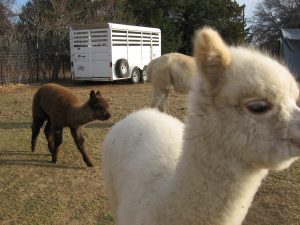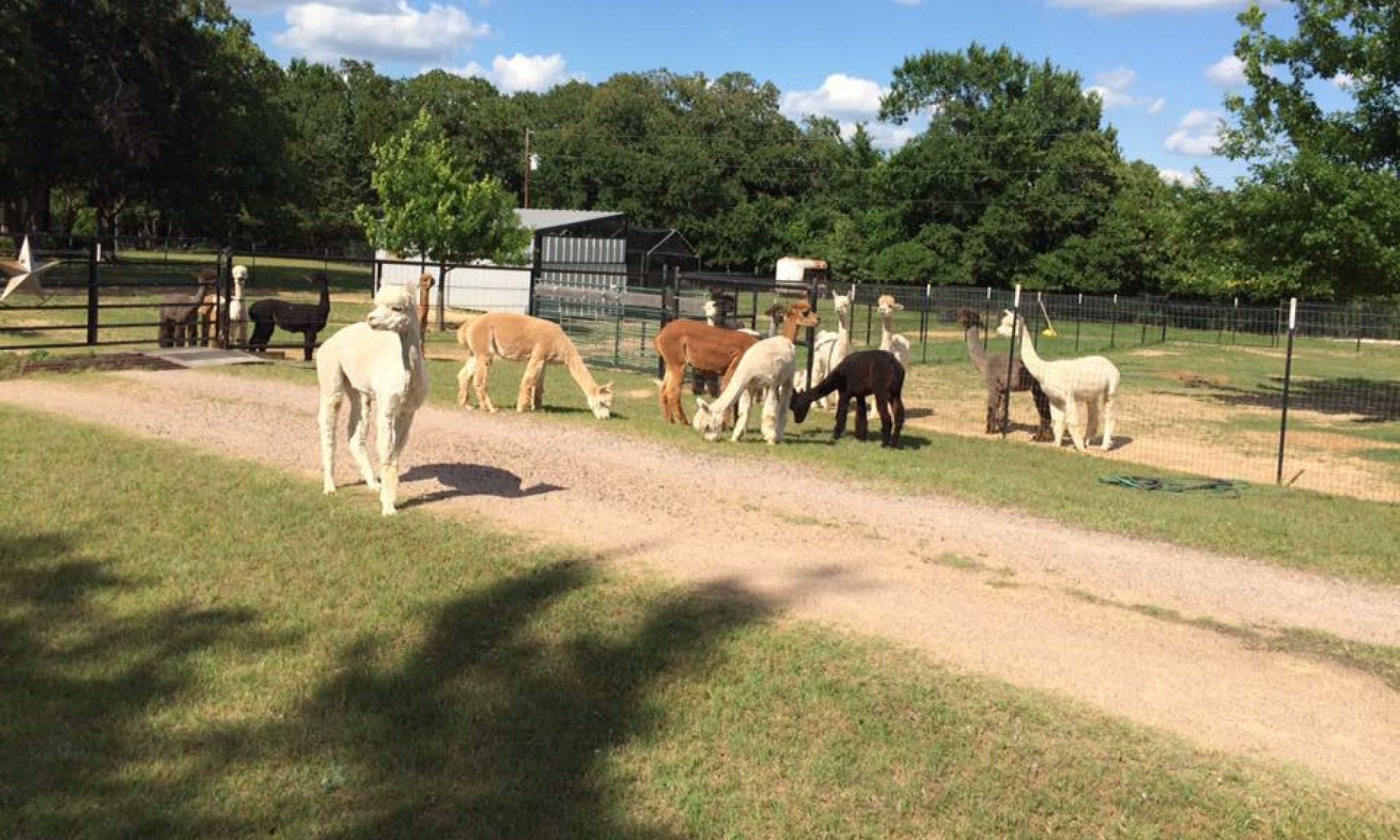Trailer Travel
Trailers should be appropriate for hauling livestock. Transporting Alpacas in a totally enclosed and dark box trailer is an unwise and unsafe choice. We bought a 16’ stock trailer that has a swinging door in the middle to divide it. This especially came in handy when we started hauling males and females to show.

We wished we had a trailer with moveable windows to protect the herd when moving in rainy weather. You might also consider a trailer that is shorter in height to reduce wind drag.
Alpacas normally cush when they travel. If they are stressed, they may choose to stand up for a long time. Please ensure that they have plenty or straw or hay on top of the boards or mats in the trailer. They don’t have a lot of padding on their breastbones or legs. This could damage them especially if roads are bumpy.
Short Distances
Alpacas can be transported in an SUV or Pickup Truck cab for short distances. If they have room to stand, be sure to insulate the vehicle as they will urinate. Personal experience guarantees this!
Weather
Be sure to transport in appropriate temperatures, either hot or cold. If transporting in a stock trailer it must be well-ventilated. Always check for signs of heat stress (flared nostrils, lethargy) and/or hypothermia (shivering) periodically. This should be done whether moving or parked!
Leads and Halters
Leave your herd untied while transporting Alpacas. Alpacas tied during transport can suffer severe injury or death. On rare occasions, it may be prudent to tie animals for safety, as when transporting in a vehicle they could jump out of (not recommended). If you have to tie them in this situation, ensure that their tied lead is short to prevent them from becoming strangled with a wrapped up lead. We generally remove all halters and leads during transport.
Certificate of Veterinary Health (C.V.I.)
There is a USDA rule that requires a health certificate to cross state lines. If you are attending a show you will also be required to get one within 30 days of the show. Your vet supplies this form. It may be computer generated or hand written. Note that multiple animals can be listed on the same form saving costs over the first and most expensive one. We pay about $20-$25 for the first Alpaca and about $4-$5 for each additional one on the form.
Read next: Breeding

